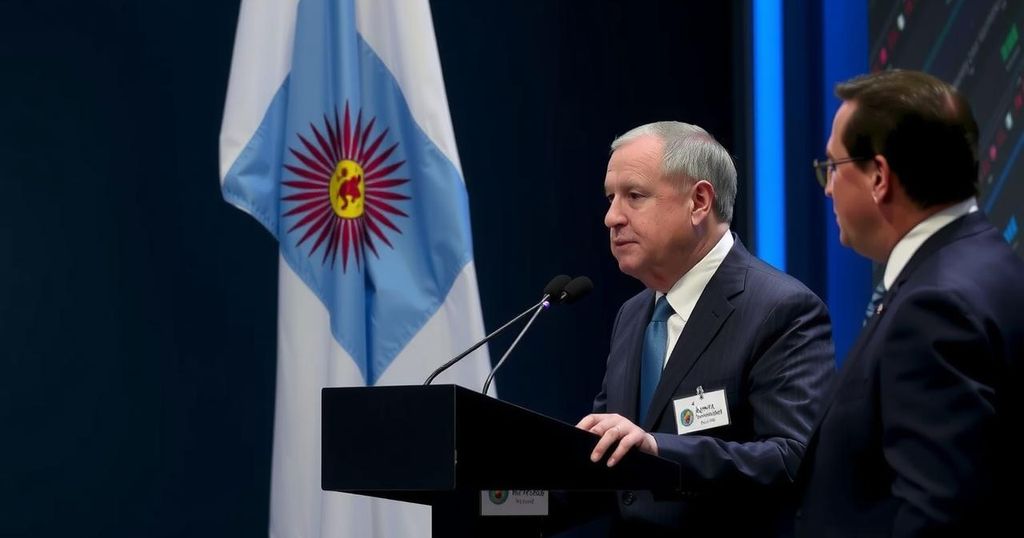Argentina has withdrawn its delegation from the Cop29 summit, reflecting the government’s anti-climate stance under President Javier Milei. This decision raises concerns about the nation’s commitment to international climate agreements and negotiations for climate finance. Critics warn that this move could weaken Argentina’s influence in global climate policy and harm its economic position.
Argentina has withdrawn its delegation from the Cop29 summit in Baku, Azerbaijan, after only three days, a move that raises concerns about the country’s commitment to international climate agreements. This decision comes from the administration of President Javier Milei, who has previously downplayed climate issues, referring to them as a “socialist lie,” and has expressed intentions to reconsider Argentina’s participation in the Paris Agreement. The abrupt withdrawal jeopardizes Argentina’s role in crucial negotiations regarding climate finance for the energy transition. The undersecretary for the environment, Ana Lamas, confirmed the withdrawal, indicating it was a directive from the Ministry of Foreign Affairs, but emphasized that it only concerns Cop29 at this time. Observers have voiced alarm that this action could weaken Argentina’s position in international climate discussions and hinder its capability to secure vital resources to combat the climate crisis. Furthermore, following Milei’s discussions with former U.S. President Donald Trump, concerns intensified regarding the potential influence of right-wing politics on global climate policy. Experts like Carla Chavarria highlighted the detrimental impact of Argentina’s absence from Cop29, noting it diminishes the nation’s voice at a critical juncture for climate finance negotiations. The Citizens Association for Human Rights lamented this withdrawal, particularly given Argentina’s previous leadership on the gender program within climate negotiations. Additionally, trade relations, particularly with the European Union, may also suffer, as noted by Julieta Zelicovich, who expressed concerns that environmental commitments are essential for advancing Mercosur trade agreements. Critics have condemned this decision as an ideological stance that contradicts Argentina’s historical engagement in climate policy. Oscar Soria remarked on the implications of this withdrawal for Argentina’s diplomatic strategy, underscoring that it reflects a broader trend of populist governance that tends to prioritize ideological coherence over pragmatic solutions for pressing global issues. This sudden retraction from Cop29 epitomizes the challenges faced by Argentina under a government perceived as climate-disinterested, raising fears about the future of its environmental commitments and international relations in the context of climate change.
The withdrawal of Argentina’s delegation from the Cop29 summit reflects significant political shifts within the country under President Javier Milei’s administration, characterized by a dismissal of climate science and a threat to international cooperation on climate issues. Previously, Argentina played an active role in global climate discussions; however, the current government’s stance has undermined that legacy. Consequently, the nation’s commitment to international environmental agreements, like the Paris Accords, is now viewed with skepticism. The concerns extend to potential ramifications for global climate policy as Milei’s administration could align with like-minded nations that reject established climate science.
In summary, Argentina’s abrupt decision to withdraw from Cop29 is indicative of a larger ideological shift in the country’s approach to climate policy under President Milei. This development threatens Argentina’s standing in international negotiations and raises alarms about the sustainability of its economic and environmental future. As global efforts to combat climate change intensify, the implications of Argentina’s actions will continue to unfold, potentially impacting both domestic policies and international agreements.
Original Source: www.theguardian.com






